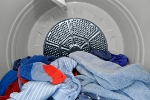Tiny metallic particles produced by University of Adelaide chemistry researchers are bringing new hope for the production of cheap, efficient and clean hydrogen energy.
California's Butte College is the first college in the history of the United States to go 'grid positive,' meaning that it will generate more electricity from its solar arrays than it consumes and will deliver power back to the electric grid.
The "Economic Impacts of Restoration Calculator for Oregon Counties" helps restoration practitioners better forecast the economic impacts of field-based restoration spending.
Development of disease resistance among Chesapeake Bay oysters calls for a shift in oyster-restoration strategies within the Bay and its tributaries.
The U.S. Environmental Protection Agency has awarded nearly $3 million to better understand how the liver responds to environmental toxicants. Four academic institutions, including Virginia Polytechnic Institute and State University, will develop ways to enhance what society knows about environmental contaminants and the liver, the body’s waste treatment organ.
The study found that, overall, composition of a plant community is a weak predictor of the composition of a bee community, which may seem counterintuitive at first, said USGS scientist and study lead Ralph Grundel
How does the power output from solar panels fluctuate when the clouds roll in? And can researchers predict these fluctuations? UC San Diego researchers have found the answer to these questions.
During the last space shuttle flight, scheduled for July 8, 2011, astronauts will test a new method for recycling "used" water. Water is essential for life, and having access to water beyond Earth will be a major obstacle for future space explorers.
Climate change disasters, such as the melting of the Greenland ice sheet, dieback of the Amazon rainforest, or collapse of the Atlantic overturning circulation, could be predicted argues a University of Exeter researcher.
The award honors Genomatica's affect on the production of major industrial chemicals – those made and sold in billions of pounds per year – with better economics and a smaller environmental footprint, using biological organisms and renewable feedstocks.

A team of students from the Bourns College of Engineering at the University of California, Riverside, have been selected for a $15,000 EPA grant to develop a system that could cut electricity bills up to 16 percent by using heat from the sun and attic to operate a clothes dryer.
On average, human activities put out in just three to five days the equivalent amount of carbon dioxide that volcanoes produce globally each year according to a new article in Eos, from the American Geophysical Union.
The significance of climate change to the practice of agriculture, soils, and land management has led the 10,000-plus members of the American Society of Agronomy (ASA), Crop Science Society of America (CSSA), and Soil Science Society of America (SSSA) to develop a position statement on climate change, based on a review of current scientific knowledge and understanding.
New wastewater technologies can appear faster than E. coli after a thunderstorm, yet their adoption and resulting benefits can be slowed or derailed by common issues that can be solved or avoided.
Using the liver as an “alarm system,” researchers are starting to better understand the different levels of toxicity from pesticide compounds and their effects on the human body.
Under the requirements of the law, EPA will gather information on what nanoscale materials are present in pesticide products to determine whether the registration of a pesticide may cause unreasonable adverse effects on the environment and human health. The proposed policy will be open for public comment.
A new study from biology researchers at Baylor University and the University of Maryland-Baltimore has found that there are consistent and widespread declines in stream biodiversity at lower levels of urban development more damaging than what was previously believed.
New research focusing on the Houston area suggests that widespread urban development alters wind patterns in a way that can make it easier for pollutants to build up during warm summer weather instead of being blown out to sea.
An engineer and aspiring entrepreneur at MIT is working on fog harvesting to attract water droplets and corral the runoff for poor villagers to collect clean water near their homes.
Scientists could have a revolutionary new way of measuring how much of the potent greenhouse gas methane is produced by cows and other ruminants, thanks to a surprising discovery in their poo.